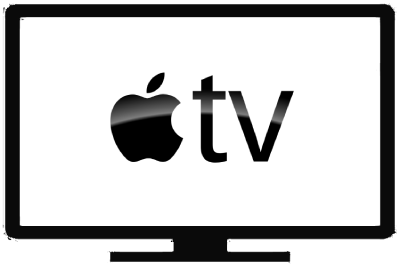What happens to a small town when a prison shuts down? The Augusta Correctional Center employed many residents and brought business to Craigsville, Virginia, a two square-mile, 900-person town located in the Shenandoah Valley. But when the prison closed in the summer of 2024 with minimal warning and no time for planning, Craigsville residents and the town’s economy were hit hard. In this special report, Laura Flanders & Friends correspondents Chelsea Higgs Wise and Lewis Raven Wallace head to Craigsville to learn about how the town is struggling, possible solutions from locals, and the larger questions around our country’s prison industrial complex. How can small, rural communities be supported in a sustainable transition away from a carceral economy? Join us as we envision the future of Craigsville and investigate how decarcerating the economy can become a win for all. Chelsea Higgs Wise is a community organizer based in Richmond, Virginia whose work focuses on empowering Black communities economically and educationally. She is co-founder and director of Marijuana Justice, a Black-led organization established to repair the harms of the drug war. Durham, North Carolina-based Lewis Raven Wallace is an independent journalist, author, and the Abolition Journalism Fellow at Interrupting Criminalization. Plus, a commentary from Laura on what could happen to the Augusta Correctional Center under the Trump administration.
“At one point there were 43 institutions in the Virginia Departments of Corrections . . . That number has dramatically decreased as a result of measures put in place, such as incentive credits, the juvenile parole bill, and other pieces of legislation that helped sentencing.” – Sincere Allah
“What I would say is that building these prisons has not changed communities. It hasn’t helped people inside. It hasn’t helped create all these amazing jobs . . . Instead of investing $1.5 billion in our prisons, parole, probation, what if that was invested in communities?” – Margaret Breslau
“Augusta Correctional opened in 1985. Probably at least half of the population here was working over there at that time. And it boosted the community greatly . . , boosted the town operational costs also. Kind of devastating for them to leave.” – Richard L. Fox
“There’s a gorgeous gym in that is just full of equipment that these young people could very much get something out of. There’s a beautiful library in there. There’s two ball fields there. There’s plenty of office space. It could be turned into a lot of things.” – Tracy Martin
LAURA FLANDERS & FRIENDS
What Happens After a Prison Shuts Down? A Report from Rural Craigsville, Virginia
LAURA FLANDERS: Craigsville, Virginia is a two square-mile, no-stoplight town, located about 30 minutes southwest of Staunton, and about an hour and a half’s drive north of Roanoke. Until about six months ago, Craigsville had a population of around 900, a handful of stores and restaurants, nine churches, and a prison. The Augusta Correctional Center, a maximum-security prison that kept the local economy humming. In July 2024, that prison closed along with three other facilities across the state of Virginia. With little warning and minimal time for planning, local people were left wondering, what happens next to their town, their economy, and its culture? We sent a team to listen in to some of the townspeople of Craigsville’s deliberations. Chelsea Higgs Wise is a community organizer, based in Richmond, Virginia. Her work focuses on empowering Black communities economically and educationally, and she’s co-founder and leader of Marijuana Justice, a Black-led organization established to repair the harms of the drug war. Durham, North Carolina-based Lewis Raven Wallace, is an independent journalist and author, as well as the Abolition Journalism Fellow at Interrupting Criminalization, a resource hub led by former guests of this show, researchers Mariame Kaba and Andrea Ritchie. A few months after the Augusta Correctional Facility closed, Lewis and Chelsea went to Craigsville, for “Laura Flanders & Friends.”
LEWIS RAVEN WALLACE: We came here to Craigsville to look into what it could mean to decarcerate the economy of a small town.
CHELSEA HIGGS WISE: Craigsville is a beautiful rural place in the western part of Virginia, but its problems are not unique. In 2024, Virginia closed down four of its prisons.
LEWIS RAVEN WALLACE: Here in Craigsville, that’s meant this town with a population of just over 900 people is left with some real challenges, fewer jobs, fewer visitors, and bills that can be hard to pay without the revenue from the prison.
CHELSEA HIGGS WISE: We’ll be looking at why Virginia is closing down its prisons now, and what the state is actually doing to pursue decarceration and decreasing prison populations. And so we’re curious, what is the future for places where an economy is dependent on a prison, and what might be possible now?
LEWIS RAVEN WALLACE: Richard Fox has been the mayor of Craigsville for 35 years, and he’s a lifelong resident. He gave us a tour of Augusta Correctional Center, and the town of Craigsville’s water plant right up the street.
RICHARD L. FOX: There was about 1,400 inmates, and I think they had somewhere in the neighborhood of 360 employees. This is a mail trailer unit that they use to intake the mail and separate it, take it into the inmates from this trailer right here. He’s pulling into the yard. Now, this is the water plant. This facility right here cost a million dollars to build. About 60% of the water went to the prison, to the correctional center.
LEWIS RAVEN WALLACE: Fred Sprouse grew up on a farm near here. He manages the town’s water system, which supplied a lot of water to the prison, and relied on the state for water revenue.
FRED SPROUSE: It hurts, you know, our usage just went in half, but you know, of course, I guess all we got really, basically what we’re operating on is what we’re selling to the customers in Craigsville now.
LEWIS RAVEN WALLACE: How much revenue are you losing from the prison?
RICHARD L. FOX: $42,000 a month. You can do the math on that, much close to $500,000 a year that we lost, just on the water revenue part of it.
LEWIS RAVEN WALLACE: Before the state of Virginia expanded its prison system in the ’80s and came here, the town had already been through a different boom and bust cycle. It was a struggling rural community.
RICHARD L. FOX: Well, it was hard times when I was small, of course, we hit the depression and one thing and another back then, and the only employment or the actual major employment here was the Lehigh Portland Cement Plant when it opened. Town was booming. We had five grocery stores, we had four filling stations. We had a drive-in theater, walk-in movie theater, a bowling alley. It was a booming place when Lehigh Cement Plant was opened, and of course, it closed in ’68, which kind of took the heart of the town out.
LEWIS RAVEN WALLACE: A major slowdown with the closure of the Lehigh Cement Plant lasted through the 1970s. Then in 1985, the state of Virginia opened Augusta Correctional Center.
RICHARD L. FOX: Least half of the population here was working over there at that time, got jobs and was working right here. And it boosted the community greatly. And of course, the revenue comes in, they’re coming in from the correctional center, boosted the town operational costs also, and kind of devastating for them to leave.
LEWIS RAVEN WALLACE: So half the people, half the residents of Craigsville were working-
RICHARD L. FOX: Right
LEWIS RAVEN WALLACE: At Augusta. Was that throughout until they closed or did that shift over time?
RICHARD L. FOX: No, that just kind of dwindled down over the years. Several of them was hurt and several of them retired, and it dwindled down to where they were having problem keeping staff working over there.
CHELSEA HIGGS WISE: We met Tracy Martin at the volunteer fire station, just up the hill from Craigsville’s main street.
TRACY MARTIN: I’m the fire chief here, been here for 43 years. Been the fire chief for 10, following in my father’s footsteps. Everyone in this town is a neighbor. Everybody in this town’s family. Well, I worked at the Augusta Correctional Center. I was there for almost four years, and it was a different community to work in. You deal with inmates everyday. But like I said, I don’t blame the inmates. The inmates weren’t hard to work with. It was the leadership of the company that was there. They made it really hard for employees. That’s why they lost employees is because you didn’t treat your employees good.
LEWIS RAVEN WALLACE: Over time, the prison was understaffed and had fewer people locked up. In early 2024, it became clear it was on the list for closure. Pam Carter is on the Augusta County Board of Supervisors, and represents the Craigsville area.
PAM L. CARTER: You know, there was rumors going around that the prison was going to close, but again, we felt like those were rumors, and we didn’t know how much validity to add to that. So it was quite stressful. We had a one meeting with the Department of Corrections, initially to talk, and the mayor was there. Our two state legislators were there. I was there, and then people from the Department of Corrections were there also.
RICHARD L. FOX: I was hoping there was some way we could keep it open, which in the meeting that we had here with the public that night, I specifically asked them, “What can we do to keep it?” And pretty much was told that the decision had been made. It wasn’t anything could be done.
PAM L. CARTER: And we, of course, had an opportunity for the individuals to come and speak, and it was quite moving and emotional for some of those folks. They were worried that they weren’t gonna be able to find work that was gonna be close enough or pay the amount of income that they were having that time. So that was the main thing, was the income.
LEWIS RAVEN WALLACE: Augusta Correctional Center was emptied out in a matter of months. Most of the staff were placed in other facilities or offered retirement, and it quickly changed things in Craigsville. Someone who noticed was David Swink, a cattle and hay farmer who lives nearby, and hangs out at the local diner, BG’s.
DAVID SWINK: Well, I live about two miles from that prison, and obviously, I see a dramatic shift in the traffic on the road that I live in. But I come to the restaurant, BG’s Restaurant here in Craigsville, and I see the decrease in business. It used to be some of the officers would show up for lunch, and of course, that business decrease has been seen. The farm is still operating, but we don’t know the future of that. I’ve seen some of the small businesses close, and my heart really goes out for the area when that happens because I see another nail in the coffin of a small and dying community.
LEWIS RAVEN WALLACE: The state of Virginia has bailed Craigsville out from its debts for the time being, but the town is still left with about a third of its yearly revenue missing since the prison closing down. Unless somebody opens up something new in the facility sometime soon, it’s not clear how the town will pay its bills.
CHELSEA HIGGS WISE In 2023, Virginia led the nation in reducing prison populations. But why are prisons in Virginia closing?
LEWIS RAVEN WALLACE: Virginia prisons are closing because of a reinvestment in a population of our society that was deemed irredeemable. And that population is those individuals who are incarcerated.
CHELSEA HIGGS WISE: Sincere Allah with the REFORM Alliance, knows firsthand, what Augusta Correctional Center was like when it was open. He served two terms during his time in Virginia State Prison, and he’s not sad to see it closed down.
SINCERE ALLAH: I left Augusta that first time in 2010. When I left, no AC, no heat. So Augusta initially, a lot of its cells were meant for single occupancy. They restructured Augusta when they had that big prison boom or a big incarceration boom in the ’90s. They restructured and put bunks, they double-bunked all the cells, which meant now, you have pods where it was only meant for maybe 40 people total, now have 80 people in them. So you double the occupancy, and in an environment that has very little exhaust. So you can’t get airflow in or out of the pods, and there was a new mandate on level fours and up, where you only get out of cell time, a certain amount of time a day/a week. So we were locked in our cells for longer periods of time without AC and heat. So in the summertime, when it’s 90 or 100 degrees, it’s upward of 110 in the pod. Like, your walls sweat, you sweat, thinking makes you sweat.
CHELSEA HIGGS WISE: We continue to talk about how he became involved in prison reform.
SINCERE ALLAH: I spent 24 years incarcerated in the Department of Corrections here in Virginia from the age of 18 to the age of 42. And I was successfully able to earn a pardon by the former governor, Ralph Northam, on January 14, 2022. And from that date, I have been working on legislation. I have been testifying amongst the general assembly, both on a state and federal level for legislation related to social justice and criminal justice reforms. In 2021, myself and the organization that I currently work for, REFORM Alliance, we helped to restructure how probation is viewed in Virginia, and that itself helps to decarcerate lots of individuals. 46% of our prison system at that time was filled with individuals who had technical violations. So we have worked to make sure that that doesn’t happen ever again, and also, earned sentence credits.
CHELSEA HIGGS WISE: Starting in 2022, earned sentence credits lets some people who held jobs and took classes actually be released from prison earlier. Before these reforms, Virginia was locking up more people per capita than most other states. So there were lots of little Craigsville’s, places where prisons had become an economic boom. Margaret Breslau is the co-founder of Virginia Prison Justice Network.
MARGARET BRESLAU: Back when prisons were really being pushed in communities, you know, back in the ’90s, tough on crime, these small rural communities thought, “Hey, we’re gonna revitalize our communities, we’re gonna have jobs.” But now, it’s a different story.
SINCERE ALLAH: There were more institutions of incarceration in the state of Virginia than there were institutions of higher learning. The cost in Virginia to incarcerate individuals was far greater than the cost to educate an individual post-secondary, meaning you can put a person in prison for a higher dollar amount than it would take to educate that person post-high school.
CHELSEA HIGGS WISE: The US still has one of the highest incarceration rates in the world per capita. Sincere and Margaret both argue that the best thing for people inside and outside of prison is full decarceration, and closing all facilities. They say prisons are a drain on places like Craigsville, creating short-term gains, but then leaving these rural residents to pick up the pieces. Prisons create an extractive economy.
MARGARET BRESLAU: You’re pulling people out of the community into jails and prisons. You have the extraction of low-wage workers pulled into this, jobs that aren’t gonna go anywhere, right? And you only need a GED or a high school equivalency to get a job in a prison. When you have a 18-year-old, a 19-year-old working in a prison, I can’t imagine what that does to your psyche. Managing grown men, been in this world, it’s a violent world, and it’s a dehumanizing situation. That’s why you have a carousel of staff, right? So you’re never gonna get a stable workforce by counting on a prison.
SINCERE ALLAH: These communities really don’t have an economy that wasn’t centered around corrections. Like, some of these individuals were like, their fathers or their moms or like, you know, someone’s a nurse, their sister works in the medical department, their brother works in the commissary, you know, then you got three of them that are, you know, three people, a husband and wife may be correctional officers. Like, that was the kind of thing that this entire area relied on for since the ’80s.
MARGARET BRESLAU: We have to look at what prisons do to all of us, how it impacts all of us. And what I would say is that building these prisons has not changed communities. It hasn’t helped people inside. It hasn’t helped create all these amazing jobs. And so instead of investing $1.5 billion in our prisons, parole, probation, what if that was invested in communities?
CHELSEA HIGGS WISE: This is the question we brought to the people of Craigsville. What if there was new investment in the site that used to be Augusta Correctional Center? What would they envision for their own community?
LEWIS RAVEN WALLACE: We went back to BG’s, Craigsville’s local hangout. Claudette Wilcher is a pastor.
CLAUDETTE WILCHER: Let’s forget Walmart, you know, let’s forget Sheetz, let’s find something locally that we can do to meet a need in this community.
DAVID SWINK: Well, I personally would like to see tourism fill the vacancy. I travel to Gatlinburg and Pigeon Forge every year, and I’d look around my community, the God-given beauty that exists here. Take for example, right down the road, 15 miles, we have Goshen Pass River flowing through big boulders, and I see what tourism has done for that area, and I would like to see some of the void filled with tourism.
– Sandy Sprouse is another resident born and raised here. She owns a small business right next door to BG’s, Grandma’s Busy Bees.
SANDY OSCAR SPROUSE: I would love to see them to utilize that space for something positive. I know when the Staunton Correctional Center closed down, they were able to transform some of that facility into apartments. It would be a lot of work to do that with this type of structure, but I think it could be done. There is a medical facility within the prison. It would be nice if we could utilize that somehow for the community, and it would be wonderful, and I’m speaking from experience here, but it will be wonderful to have like an adult daycare. So there’s a building as you go in, that will be perfect for that.
LEWIS RAVEN WALLACE: Other people wanted to see the issue of housing addressed, like Catherine Moyers-Youell. Now, the prison is standing empty. What would you most hope to see happen next for this community?
CATHERINE MOYERS-YOUELL: I think we agree. What we would hope to see is people being able to have more home ownership, so they can own their home and take pride in their home. And it’s not substandard housing that you’re having to take because you’re at poverty or below the poverty level.
LEWIS RAVEN WALLACE: The water manager, Fred Sprouse, also has some ideas about a new use for the building.
FRED SPROUSE: If the VA could open up something, I mean, like, they could have their own medical center. I mean, everything could be, I know, it’s a lot of money to do that, but I mean, the way I look at it, it’s benefiting people that served our country.
LEWIS RAVEN WALLACE: Is there anything that the prison facility could be, other than a prison or detention center?
RICHARD L. FOX: Well, there’s a couple different things going on across the state. One is the Department of Corrections teaches classes in their facilities, and once they pass those classes, a lot of their charges are removed, but they’re transporting them from different prisons to take those classes. All of that could be held right here in this facility right here without any problem at all.
CHELSEA HIGGS WISE: Prison populations nationally, have been going up since 2020. The Trump administration is also planning to expand immigrant detention. All of this means Craigsville and places like it, might be courting the federal government to try and get another prison in their community. But we asked people in Craigsville to keep imagining what else was possible.
TRACY MARTIN: If we could do an open gate thing, you know, there’s a gorgeous gym in there that is just full of equipment, that these young people could, very, very much get something out of. There’s a beautiful library in there, there’s two ball fields there, there’s plenty of office space. You know, it could be turned into a lot of things.
DAVID SWINK: My heart goes out to farmers, and I like to see the area stay open and continue to be used for that. However, there’s probably a lot of other uses. For example, solar could be set up in some of the open areas, things that would generate some revenue.
LEWIS RAVEN WALLACE: The people in Craigsville and other towns where prisons close are in a tough situation. They still have this building on their hands, and it’s still not clear where the funds would come from to turn it into something else. But at least in Virginia, decarceration is happening, and more people are realizing that prison economies are not sustainable. There will need to be long-term solutions for places like Craigsville that aren’t about locking people up.
SINCERE ALLAH: My vision or my dream or hope or aspiration for a thriving economic stronghold in the Craigsville and surrounding area would be, if it’s in corrections, would be an investment in individuals reentering society. So right now, there’s a housing shortage, across the entire United States of America for individuals who are being released from long-term incarceration and short-term incarceration. The prisons are closing because the population is shrinking, not because these people are disappearing, they’re coming back into society, but they’re coming back into society with less skills and less opportunities. So the entire community of Craigsville and around can be used to aid and assist in the successful reintegration of individuals back into society.
MARGARET BRESLAU: People end up in prison because they’ve got problems that have not been solved in their community, addressed in their community, whether it’s opioid addiction, houselessness, no jobs, mental health, education. What if we were to address those needs? What if we turn that prison into behavioral health, mental health support systems for women who often experience partner violence in their lives? What happens when communities have prisons? The prison is the community, and there’s no connection there. But what if we created spaces where there was connection, where people could thrive? That’s what I would like to see.
RICHARD L. FOX: We’re in a work in process of trying to get things going here again, and we’ve got several businesses, the dollar store, and different things that’s open up, the Rite Aid, and things starting to open up when this happened, and hopefully, they’ll continue on without any problem. I don’t foresee anything happening in any of those. We got a new Marathon station, just opened over here next door, and things are coming along. The more we have of the food, the more sales food tax we get, the more that’ll help, and getting some of the income back into the town. That’s a shame to waste all of this, I’m telling you, it’s a shame.
CHELSEA HIGGS WISE: We’re leaving Craigsville with a vision, including solar panels, tourist attractions, more farmland, recreational spaces, housing, and even new avenues for gainful employment.
LEWIS RAVEN WALLACE: People have the ideas for what could become of Augusta Correctional Center or any place that a prison moves out of. But we’re left wondering who will pay for these ideas? How can small rural communities be supported in a sustainable transition?
CHELSEA HIGGS WISE: And what structural changes are needed to truly invest in healthy communities, state, and nationwide?
LEWIS RAVEN WALLACE: How can decarceration the economy become a win for all?
LAURA FLANDERS: Between 2000 and 2022, 21 states closed or partially closed, at least one correctional facility, and some of those were converted into interesting things. In New York, a prison was converted into a TV and movie studio, in Tennessee, into a distillery, in Virginia, a maximum-security prison became multi-use housing and retail space. But those are the exceptions, not the norm, reports The Sentencing Project. More often given few resources for planning and little time, communities end up staying in the incarceration business one way or another. As of this moment, the Donald Trump administration has no plans to close prisons or convert them to anything peace-related, but they do intend to significantly increase incarceration for immigration violations. And that is one road that Craigsville could go down now. Will the people of Craigsville opt for that as the path of least resistance, or will they imagine a different future, perhaps more forward-looking that could take them down an entirely different path? With limited budgets come limited choices, but there’s no accounting for well-organized imagination, and Craigsville seem to have a lot of that. With thanks to our reporters, Chelsea Higgs Wise and Lewis Raven Wallace, stay kind, stay curious. Till the next time, for “Laura Flanders & Friends,” I’m Laura. Thanks for joining us.
For more on this episode and other forward-thinking content, subscribe to our free newsletter for updates, my commentaries, and our full uncut conversations. We also have a podcast. It’s all at lauraflanders.org.
Laura Flanders & Friends is committed to making our programming, website and social media as accessible as possible to everyone, including those with visual, hearing, cognitive and motor impairments. We’re constantly working towards improving the accessibility of our content to ensure we provide equal access to all. If you would like to request accessibility-related assistance, report any accessibility problems, or request any information in accessible alternative formats, please contact us.
















